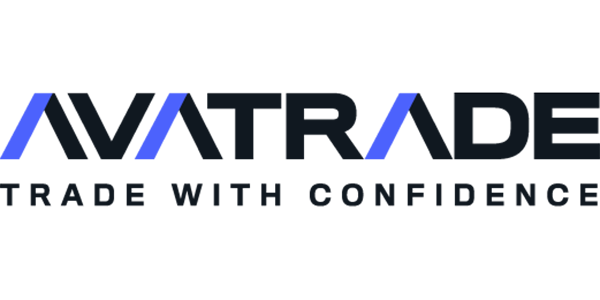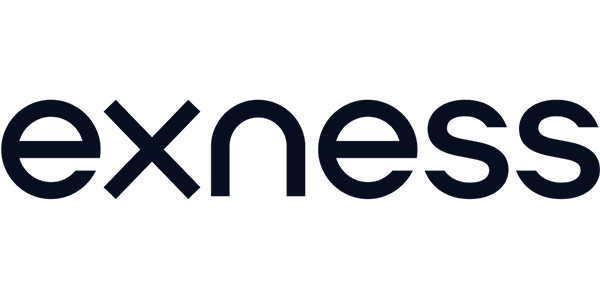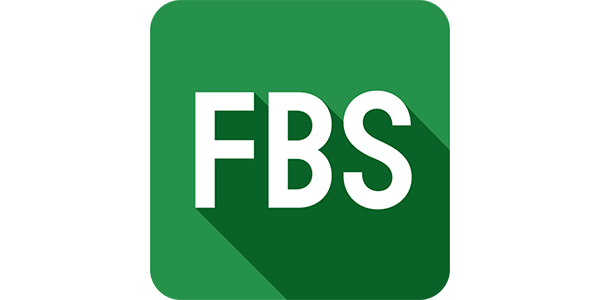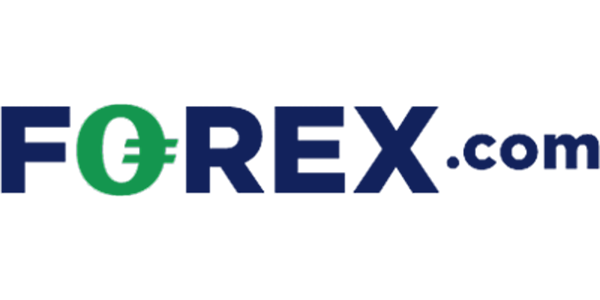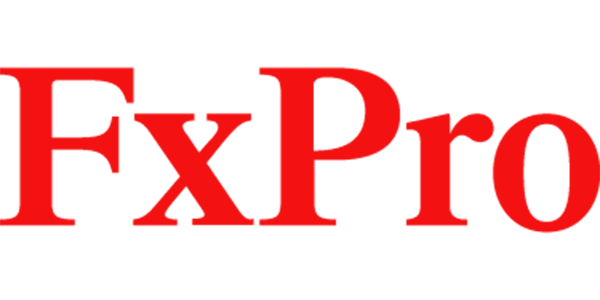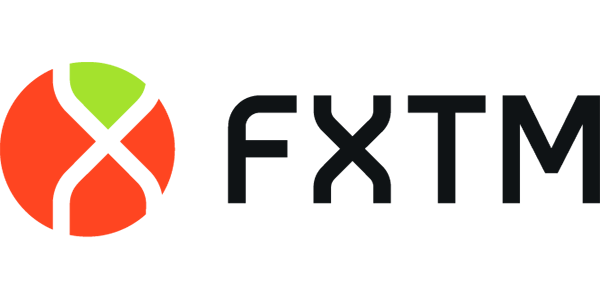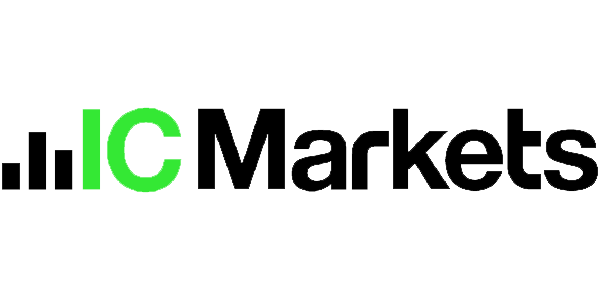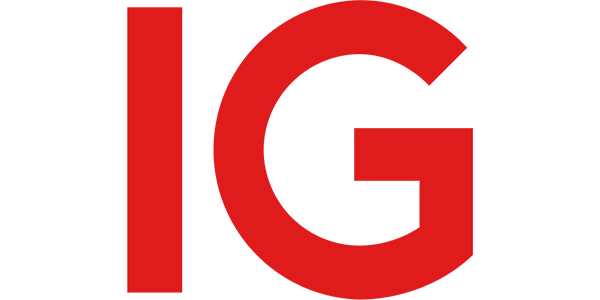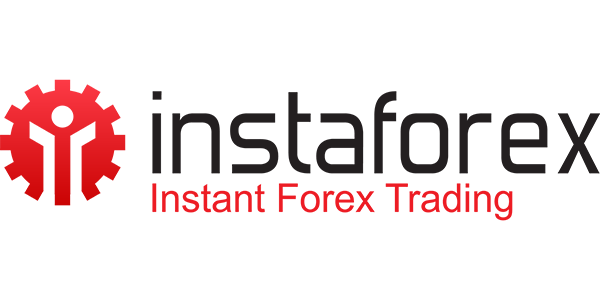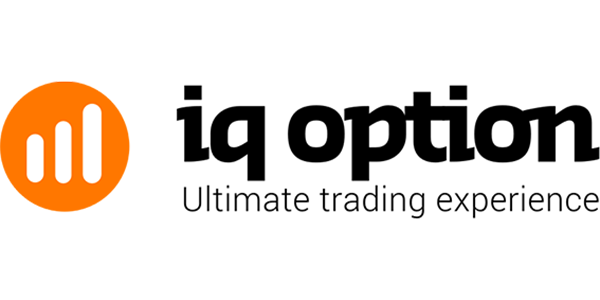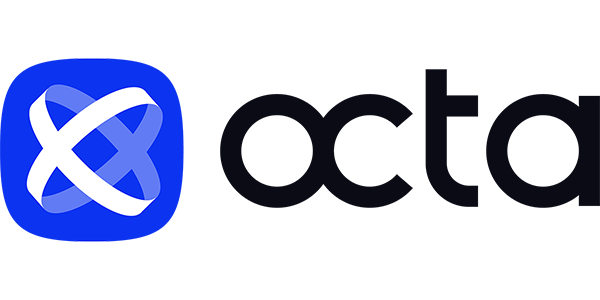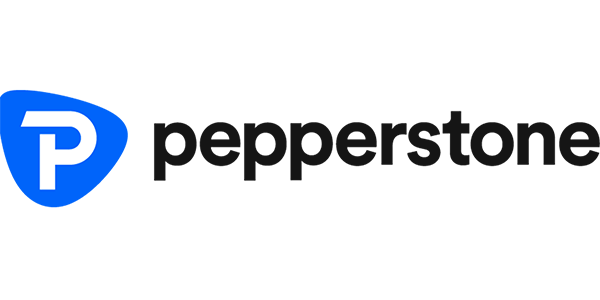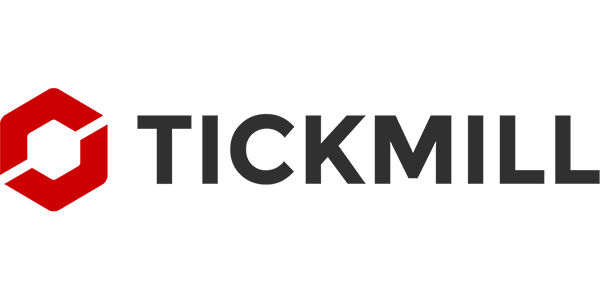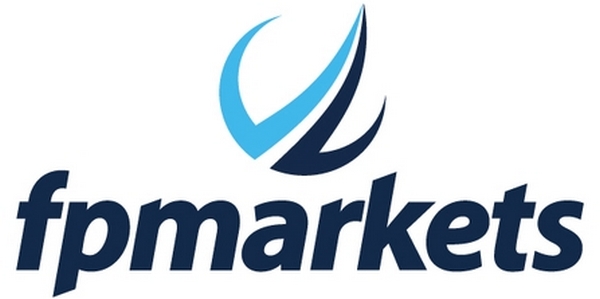In this review, examine what makes a forex broker ideal for traders based in Kuwait. We spotlight brokers that accept Kuwaiti clients, assess their strengths and weaknesses in terms of costs, platforms, regulation, and local service features, and highlight those that stand out as the top candidates in this year. Whether you’re a beginner looking for a simple and safe entry point or an advanced trader seeking razor-thin spreads and fast execution, this review will guide you toward making an informed decision.
List of The Best Broker for Trading
Here’s a quick comparison of the best trading broker based on their compatibility and market access.
| Best For | Commision | Min Dep | Leverage | Platforms | ||
|---|---|---|---|---|---|---|
| Beginners, Professionals, Active Traders | From $6 per lot | $100 | Up to 1:500 | MetaTrader 4 MetaTrader 5 Ctrader | ||
| Beginners, Active Traders | No commission (for Standard accounts) | $5 | Up to 1:1000 | MetaTrader 4 MetaTrader 5 | ||
| Beginners, Professionals, Active Traders | From $5 per lot | $100 | Up to 1:400 | AvaTradeGo MetaTrader 4 MetaTrader 5 | ||
| Beginners, Copy Traders | No commission | $200 | Up to 1:30 (1:5 for crypto) | eToro Platform MT4 MT5 | ||
| Beginners, Active Traders, Scalpers | No commission | $1 | Up to 1:2000 | MT4 MT5 WebTrader Exness Trade App | ||
| Beginners, Professionals, Active Traders | No commission (for Standard accounts) | $1 | Up to 1:3000 | MetaTrader 4 MetaTrader 5 | ||
| Beginners, Active Traders, Scalpers | From $5 per lot | $100 | Up to 1:50 | MetaTrader 4 FOREX.com Web Trader | ||
| Beginners, Active Traders, Scalpers | From $4 per lot | $100 | Up to 1:500 | MetaTrader 4 MetaTrader 5 cTrader FxProEdge | ||
| Beginners, Active Traders, Scalpers | No commission | $200 | Up to 1:1000 | MetaTrader 4 MetaTrader 5 WebTrader | ||
| Beginners, Professionals, Active Traders | From $6 per lot | $5 | Up to 1:1000 | MetaTrader 4 MetaTrader 5 Web Terminal Multi Terminal | ||
| Professionals, Active Traders, Scalpers | From $3 per lot | $200 | Up to 1:500 | MetaTrader 4 MetaTrader 5 cTrader | ||
| Beginners, Active Traders | No commission | $0 | Up to 1:200 | MetaTrader 4 ProRealTime WebTrader | ||
| Beginners, Active Traders, Proffesionals | No commission | $1 | Up to 1:1000 | MetaTrader 4 MetaTrader 5 | ||
| Beginners, Professionals | No commission on standard accounts | $10 | Up to 1:1000 | IQ Option Platform Mobile App | ||
| Active Traders, Beginners | No commission | $1 | Up to 1:50 | MetaTrader 4 OANDA Platform | ||
| Beginners, Active Traders, Scalpers | No commission on standard accounts | $25 | Up to 1:1000 | MetaTrader 4 MetaTrader 5 OctaTrader | ||
| Beginners, Active Traders, Scalpers | No commission | $200 | Up to 1:500 | MetaTrader 4 MetaTrader 5 cTrader | ||
| Active Traders, Scalpers | No commission | $10 | Up to 1:2000 | MT4 MT5 R StocksTrader | ||
| Inexperienced and Active Traders, Scalpers | From $2 per lot | $100 | Up to 1:500 | MetaTrader 4 MetaTrader 5 | ||
| Beginners, Proffesionals | No commission | $5 | Up to 1:1000 | MetaTrader 4 MetaTrader 5 |
Kuwait Market Overview
Kuwait is a wealthy Gulf state with an economy strongly tied to oil and gas. At the same time, the country is investing in banking, capital markets, and technology to reduce dependence on hydrocarbons. This overview outlines Kuwait’s economy, financial system, regulation, and key market trends.
Economic & Financial Landscape
Kuwait is a wealthy, oil-rich Gulf nation whose economy is heavily influenced by the hydrocarbon sector. Oil and gas account for a significant share of GDP, government revenues, and export earnings.
To promote long-term resilience, Kuwait has been actively pursuing economic diversification—strengthening non-oil sectors like finance, real estate, infrastructure, and technology.
One of the major pillars of Kuwait’s financial system is its sovereign wealth fund, the Kuwait Investment Authority (KIA), which manages state reserves and long-term investments. As of early, KIA manages over USD 1,029 billion in assets, making it one of the world’s largest sovereign funds.
Kuwait’s banking sector is robust, with major institutions like the National Bank of Kuwait (NBK) and Boubyan Bank (an Islamic bank) playing key roles in domestic finance and regional operations.
Capital Markets & Infrastructure
Kuwait’s capital markets have been making strides toward modernization and increased global integration:
- The Kuwait Stock Exchange / Equity Market has been gaining attention for its performance and relative stability compared to some regional peers.
- In recent years, regulators have embarked on reforms to modernize trading infrastructure, introduce a central counterparty (CCP) system, and expand offerings such as bonds, sukuk (Islamic bonds), and ETFs.
- Regulatory upgrades and new technologies are seen as ways to attract more foreign and institutional investment.
- The Capital Markets Authority (CMA), under Law No. 7 of 2010 and its amendments, governs securities, collective investment schemes, brokers, and derivatives in Kuwait.
Forex / Currency & Regulatory Environment
While Kuwait is not known as a major forex trading hub, it has particular traits that impact forex activity:
- The Kuwaiti Dinar (KWD) is pegged (or tightly managed) relative to the US dollar, which provides relative stability in foreign exchange for residents.
- Forex trading is legal in Kuwait, but it is regulated. The Central Bank of Kuwait (CBK) and the Capital Markets Authority (CMA) share roles in oversight.
- Brokers who serve Kuwaiti clients are often regulated in other jurisdictions (e.g. Europe, Australia), so local traders must verify the broker’s credibility and compliance.
- Some key regulatory requirements for brokers include transparency, separation of client funds, anti-money laundering (AML) rules, and compliance with capital requirements.
Trends, Risks & Opportunities
Trends:
- Technology & Innovation: Market modernization, fintech adoption, and infrastructure upgrades aim to make Kuwait’s markets more efficient and competitive.
- Foreign & Institutional Capital: Reforms and improvements aim to draw more foreign institutional investors.
- Sukuk & Islamic Finance Growth: Given Kuwait’s Islamic banking presence, Islamic financial products are gaining more traction in capital markets.
Risks & Challenges:
- Oil Price Volatility: Because Kuwait remains dependent on hydrocarbon revenues, fluctuations in global oil prices pose macroeconomic risks.
- Regulatory Fragmentation & Broker Legitimacy: Traders must be cautious about broker claims; ensure regulatory credentials and client protection.
- Liquidity & Market Depth: Some markets (especially niche instruments) have limited liquidity, affecting spreads and execution.
- Limited Local Forex Pair Options: Lack of KWD-based pairs may impose currency conversion costs or limit strategy options.
Key Factors to Consider
When choosing the best forex broker in Kuwait, it is important to compare more than just spreads and leverage. Traders should carefully evaluate the following aspects before opening an account:
- Regulation and Safety of Funds
- A well-regulated broker ensures that your money is held in segregated accounts and that trading practices are transparent.
- Look for brokers licensed by top authorities such as FCA (UK), ASIC (Australia), or CySEC (Cyprus).
- Islamic / Swap-Free Accounts
- Many traders in Kuwait prefer trading accounts that comply with Sharia law.
- Confirm that the broker offers Islamic accounts with no overnight interest charges.
- Deposit and Withdrawal Options
- Easy access to funds is essential.
- Choose brokers that support Kuwaiti Dinar (KWD), bank transfers, cards, and e-wallets with low transaction fees.
- Trading Costs
- Costs include spreads, commissions, and overnight fees.
- A broker with tight spreads and transparent fees will save you money in the long run.
- Trading Platforms
- Stability and ease of use are vital for execution.
- Look for brokers that support MT4, MT5, or cTrader, depending on your trading style.
- Leverage and Risk Management
- Higher leverage can increase profits but also magnifies risks.
- Select a broker that offers flexible leverage options with proper risk controls.
- Customer Support
- Accessible support in Arabic and English is crucial.
- Brokers with 24/5 or 24/7 service can help resolve issues faster.
Criteria for Choosing a Trading Platform in Kuwait
When selecting a trading (forex) platform to use in Kuwait, keep in mind that local conditions and your personal trading style will interact with technical features. Below are essential criteria to evaluate:
Regulation, Security & Trustworthiness
- The platform should be provided by a broker regulated by a credible authority (FCA, ASIC, CySEC, etc.).
- Ensure client funds are held in segregated accounts, meaning your capital isn’t mixed with the broker’s operating funds.
- Look for features like negative balance protection, use of strong encryption, two-factor authentication (2FA), and audit trails.
- Verify the broker’s license number and status via the regulator’s public registry.
Execution Speed, Stability & Reliability
- A good platform must offer low latency order execution (quick fills, minimal slippage) — especially important for scalpers or high-frequency traders.
- It should remain stable and responsive, even during times of high market volatility or news events.
- The system’s uptime record matters: downtimes or freezes can cost real money.
Supported Platforms & Device Compatibility
- Most traders expect compatibility across desktop, web, and mobile (iOS/Android) versions.
- The mobile app should deliver essential functionality (charting, order management, alerts) nearly on par with the desktop version.
- A web-based platform (browser) is useful when you can’t access your usual devices.
Analytical Tools, Indicators & Charting Capabilities
- The platform should include a wide range of technical indicators, drawing tools, overlays, timeframes, etc.
- Support for multi-chart layouts, chart templates, backtesting, and strategy testing is a significant advantage.
- Ability to trade directly from charts (right-click, drag, etc.) enhances user experience.
Order Types & Execution Features
- The platform should support standard order types (market, limit, stop, stop-loss, take-profit).
- Additional orders like OCO (one cancels the other), trailing stop, advanced algorithmic orders are valuable.
- Support for partial fills, scaling in/out of positions, hedging, etc., depending on your strategy.
Asset Range & Market Access
- Even if you trade mostly forex, it’s beneficial to have access to other markets (indices, commodities, stocks, cryptocurrencies) in the same platform for diversification.
- Check whether the platform offers major & exotic currency pairs, and whether it allows cross-currency, volatile, or illiquid pairs without unreasonable restrictions.
Costs, Spreads & Slippage Transparency
- The trading platform should show real-time spreads and fees, with no hidden markups masked in the interface.
- You should be able to monitor slippage and see execution details (price filled vs. requested).
- Platforms tied to ECN/STP models tend to offer more transparent pricing.
Customization & Automation / Scripting Support
- Ability to customize layouts, save templates, set alerts is crucial for usability.
- Support for expert advisors (EAs), algorithmic trading, scripting languages, APIs (e.g. REST, FIX), is a must for advanced traders.
- Plugin / add-on support or community scripts can be a plus.
Demo / Practice Mode & Testing Environment
- The platform must provide a demo account to test the interface, execution, strategy, and broker conditions without risking real money.
- An ideal demo should mirror live conditions (real spreads, execution) as closely as possible.
Customer Support & Localization
- Support should be available in Arabic and English, via multiple channels (chat, phone, email).
- Local (Gulf / Kuwait) support responsiveness is a big plus — especially when you face issues during trading.
- Documentation, tutorials, and help resources should be clearly accessible inside the platform.
Deposit / Withdrawal Integration & Reporting
- The platform’s back-office (account management) should make depositing and withdrawing funds easy, ideally with local banking / payment methods.
- Integrated account statements, P&L reports, instrument statements, tax/export tools are highly desirable.
- You should be able to see real-time balance, margin, free margin, used margin etc., openly and clearly in the interface.
Regulatory / Jurisdictional Compatibility for Kuwait
- Confirm the platform is legally accessible from Kuwait (some platforms or features are blocked in certain countries).
- Verify that trading certain instruments (e.g. derivatives or CFDs) is permitted under local regulations.
- Be aware of currency conversion features: e.g. whether accounts allow KWD or whether conversion fees apply.
Best Forex Brokers in Kuwait
Below is a curated list of notable brokers that accept Kuwaiti clients, along with their strengths and cautions. These brokers are frequently rated highly in global broker comparisons for the Kuwait market.
IC Markets
IC Markets
Overview: IC Markets is known for raw spreads, fast execution, and reliable trading conditions.
- Pros: Tight spreads, ECN environment, strong regulation (ASIC, CySEC).
- Cons: No direct KWD account option.
Pepperstone
Pepperstone
Overview: A highly rated broker with strong global presence.
- Pros: Advanced platforms (MT4, MT5, cTrader), low spreads, strong reputation.
- Cons: Limited local funding options in Kuwait.
FP Markets
FP Markets
Overview: Well-regulated broker offering both forex and CFD trading.
- Pros: Good execution, multiple platforms, Islamic accounts available.
- Cons: Withdrawal methods may involve conversion fees.
AvaTrade
AvaTrade
Overview: A popular choice for Middle East traders, offering user-friendly platforms.
- Pros: Arabic support, wide range of trading tools, swap-free accounts.
- Cons: Spreads slightly higher than ECN brokers.
Exness
Exness
Overview: Widely recognized for fast deposits and withdrawals.
- Pros: Flexible leverage, swap-free options, strong regional presence.
- Cons: High leverage carries significant risk.
XM
XM
Overview: A global broker that accepts Kuwaiti traders.
- Pros: Low minimum deposits, strong education materials, Islamic accounts.
- Cons: Limited advanced features for professional traders.
Comparison Table
| Broker | Strengths / Highlights | Things to Watch / Limitations |
|---|---|---|
| FP Markets | • Strong all-round choice: wide instrument range (forex, indices, stocks, etc.). • Offers Islamic / swap-free account options for compliant trading. • Regulated by top authorities (ASIC, CySEC) giving credibility to its operations. | • For Kuwaiti clients, trading may be offered under an offshore entity, so you should check local legal implications. • Some deposit/withdrawal methods may have conversion or transfer fees. |
| IC Markets | • Very competitive spreads, especially on major pairs. • Supports MT4, MT5, and cTrader — good for different types of traders. • Strong reputation globally and among Kuwait brokers’ reviews. | • Higher minimum deposit compared to some brokers. • Some local banking or funding methods might be limited or require conversion. |
| Pepperstone | • Excellent regulation (FCA, ASIC, etc.) and good global reputation. • Low trading costs, fast execution, good liquidity. • Offers Islamic / swap-free accounts as needed. | • It may not support every local Kuwaiti deposit/withdrawal route. • Some account types may have restrictions for certain jurisdictions. |
| Exness | • Very low minimum deposit thresholds and often praised for fast withdrawals. • Offers strong global regulation and presence. • Flexible leverage options (depending on jurisdiction). | • For Kuwaiti users, regulatory protection may rely on the broker’s foreign entity — local recourse could be limited. • High leverage can magnify risk; use carefully. |
| XM | • Good for beginners: low entry barrier, strong educational content. • Supports MT4 and MT5, and offers Islamic account options. • Global reputation and long track record. | • Some more advanced features (institutional tools, ultra-low latency) may be limited compared to ECN brokers. • Local funding / withdrawal routes may incur extra fees or restrictions. |
| AvaTrade | • Multi-jurisdiction regulation and solid reputation. • Good for mid-level traders: balance of features, safety, and cost. • Offers Arabic support and swap-free accounts. | • Spreads may be less aggressive than pure ECN brokers in some cases. • Advanced trading algorithms or high-frequency demands may find some limitations. |
| Fusion Markets | • Often rated among top brokers in Kuwait lists for competitive commission, low costs. • No or low minimum deposit in many account types. | • Less known in some local circles compared to bigger brand names. • Funding/withdrawal methods might not always fully localize in Kuwait. |
| BlackBull Markets | • Recognized in Kuwait broker reviews for flexibility and service. • Good choice for diversification with multiple platforms and instruments. | • Commission / spread structure may vary by region. • Make sure they support your preferred local banking method. |
Notes & Caveats for Kuwaiti Traders
- Local regulation: As of current knowledge, there is no major forex broker licensed by Kuwait’s Capital Markets Authority (CMA) exclusively for retail online forex-CFD services. Most brokers serving Kuwaiti residents are regulated via foreign regulators.
- Use demo accounts first: Always test spreads, execution, and platform stability with a demo before depositing real money.
- Check funding paths: Even if a broker “accepts Kuwaiti clients,” the usability (ease, speed, fees) of deposits/withdrawals via local banks or methods is often the deciding factor.
- Islamic / swap-free accounts: Many brokers offer these upon request. Make sure understanding of how they handle commissions or adjustments is clear.
- Leverage risk: High leverage can be tempting, but carries greater risk. Use appropriate risk management.
Best Trading Instruments in Kuwait
When choosing which instruments to trade, Kuwaiti traders benefit from both local and global opportunities. Below are some of the best instruments to consider — along with their pros, challenges, and tips.
Forex / Currency Pairs
- Major & Minor FX pairs (e.g. USD/EUR, GBP/USD, USD/JPY) are very liquid and widely available via most brokers.
- Exotic pairs (e.g. involving emerging-market currencies) may offer bigger swings but come with higher spreads and lower liquidity.
- Note: You will rarely find pairs directly involving Kuwaiti Dinar (KWD) in most global platforms, so currency conversion risks may apply.
- Many brokers serving Kuwait provide currency trading as their core offering.
Contracts for Difference (CFDs)
CFDs let you speculate on price movements of assets without owning the underlying asset. They are popular for offering access with leverage and lower capital. Typical CFD instruments include:
- Indices (e.g. S&P 500, FTSE, DAX, Gulf region indices.
- Commodities / Energies (oil, natural gas, Brent, WTI) — especially relevant in the Gulf region due to oil’s importance.
- Metals (Gold, Silver, Platinum).
- Shares / Equities (global companies’ stocks as CFDs).
- Cryptocurrencies (as CFD variants, depending on broker).
Because CFDs offer leverage, they are very attractive — but also carry risk of large losses. Always apply risk management.
Stocks & Equities
- You can trade local Kuwaiti stocks via Boursa Kuwait (the Kuwait Stock Exchange).
- Through international brokers, you can access global equities (US, Europe, Asia) depending on the broker’s market coverage.
- Trading real stocks (vs. CFDs) can reduce counterparty and leverage risk, but often needs larger capital and may have higher fees.
Commodities
- Oil & Energy (Brent Crude, WTI) are especially relevant for traders in Kuwait / the Gulf region, since the local economy is strongly tied to energy markets.
- Precious Metals (Gold, Silver) are often used by traders for hedging, diversification, and as safe-haven instruments.
- Soft commodities (e.g. agricultural goods) or industrial metals (copper, aluminum) depending on broker offerings.
Indices
Indices track performance of a basket of stocks (e.g. US, Europe, Asia, GCC markets).
- They offer exposure to broader market movements rather than individual stock risk.
- GCC / Middle East indices may also be available, giving regional exposure.
Cryptocurrencies
- Some brokers allow trading crypto-pairs or crypto CFDs (e.g. BTC/USD, ETH/USD).
- Volatility in crypto is very high, so it is more speculative and risky.
- Ensure the broker supports crypto instruments and is properly regulated for them.
ETFs & Funds
- Exchange Traded Funds (ETFs) allow exposure to baskets of assets (e.g. sector, region, commodities).
- Some global brokers allow access to ETFs as tradable instruments or via CFDs.
- This is a good way for diversification with relatively lower costs.
Conclusion
Finding the best forex broker in Kuwait depends largely on a trader’s goals, experience level, and personal requirements. While all reputable brokers provide access to global markets, the differences lie in regulation, account types, spreads, platforms, and funding convenience.
Trading Tips for Kuwaiti Traders
| Factor | Why It Matters in Kuwait | Tip |
|---|---|---|
| Local relevance / hedge potential | Instruments like oil or GCC indices may be more directly tied to your regional economy | Use commodities and regional indices to hedge macro exposure |
| Liquidity & spread | Instruments with higher liquidity tend to have tighter spreads and better execution | Stick with major FX pairs, top indices, and liquid commodities for lower cost |
| Leverage & risk | Especially with CFDs, leverage amplifies both profits and losses | Use conservative leverage and stop losses |
| Regulation & broker support | Some instruments (like crypto CFDs) may not be universally supported under regulation | Confirm your broker allows the instruments you want |
| Diversification | Don’t focus only on one instrument type to reduce risk | Mix FX, commodities, indices, and equities across your portfolio |
FAQs
Is forex trading legal in Kuwait?
Yes, forex trading is legal in Kuwait. It is regulated by the Central Bank of Kuwait (CBK) and the Capital Markets Authority (CMA). Traders are free to use international brokers as long as they comply with local financial regulations.



